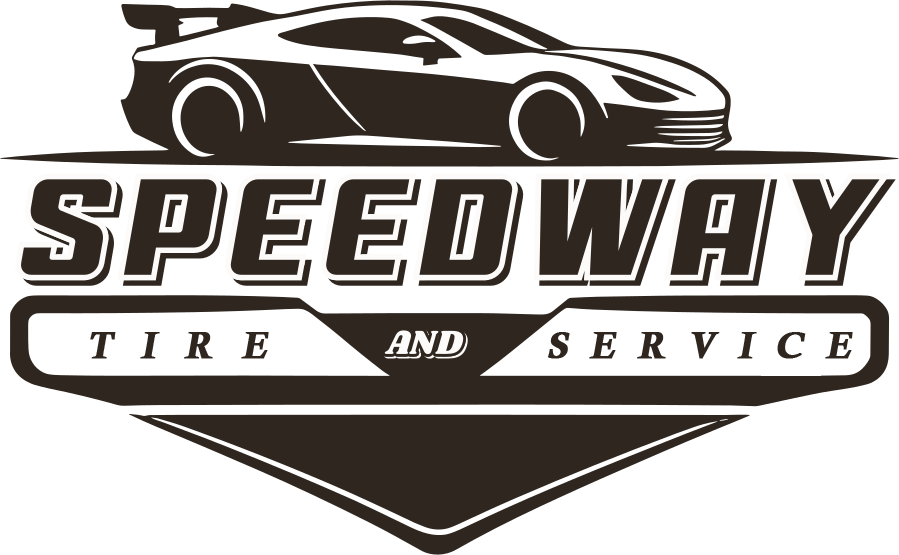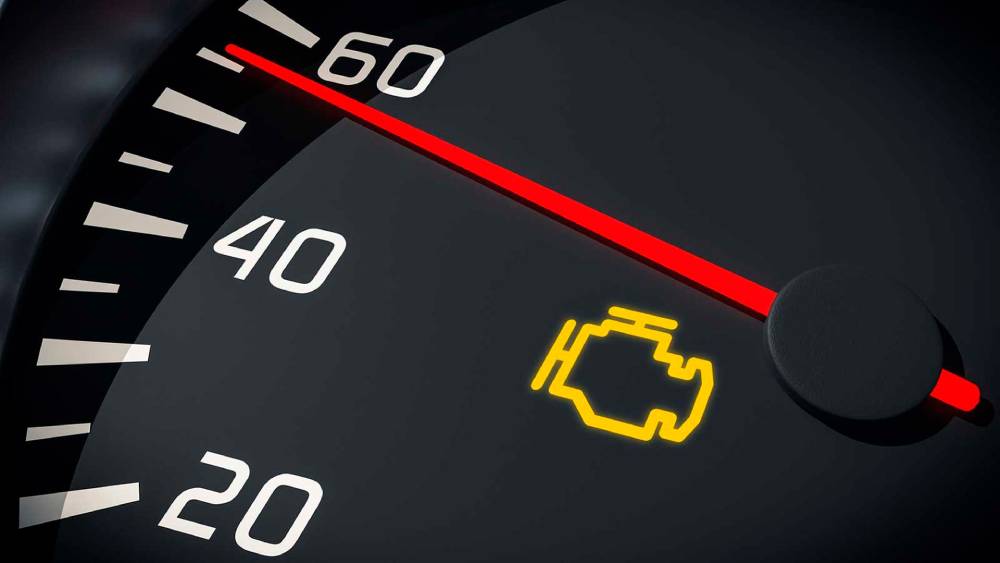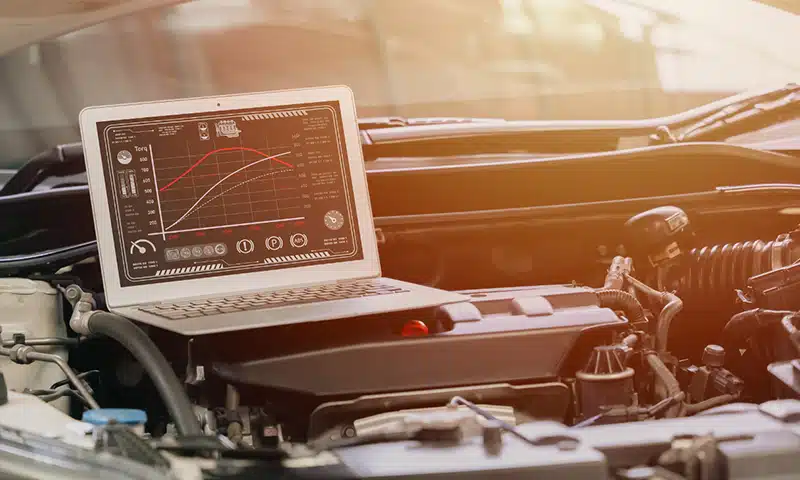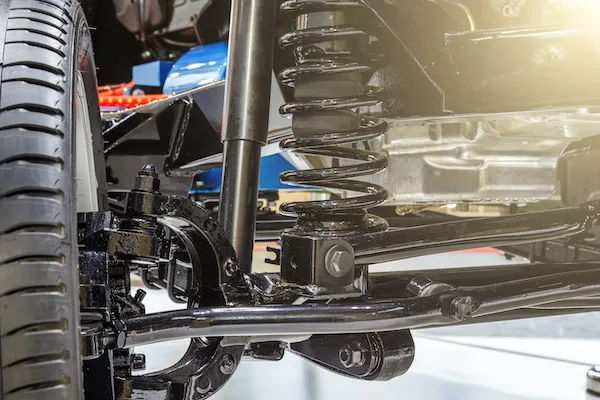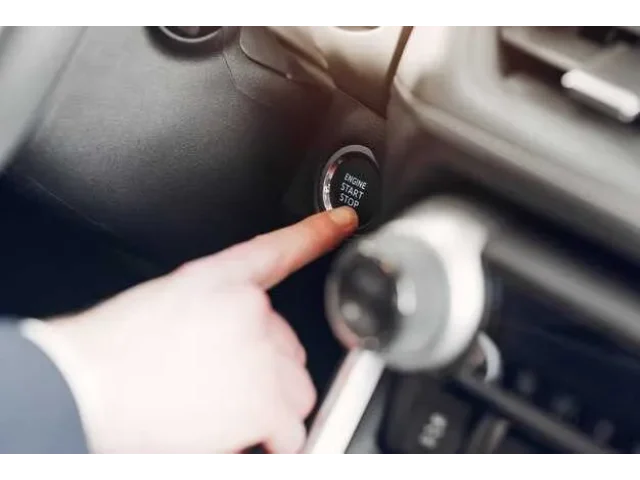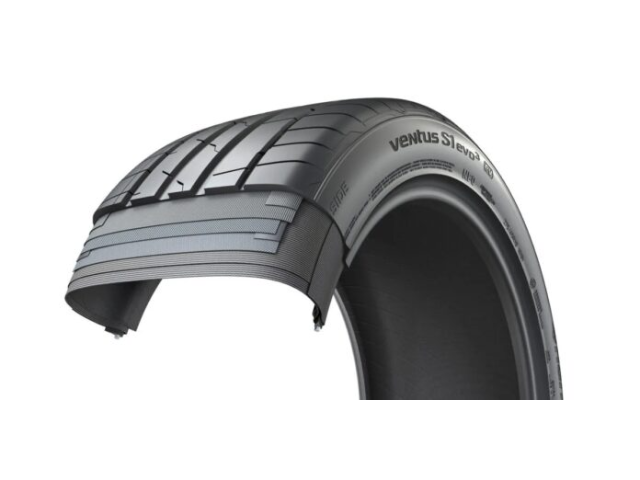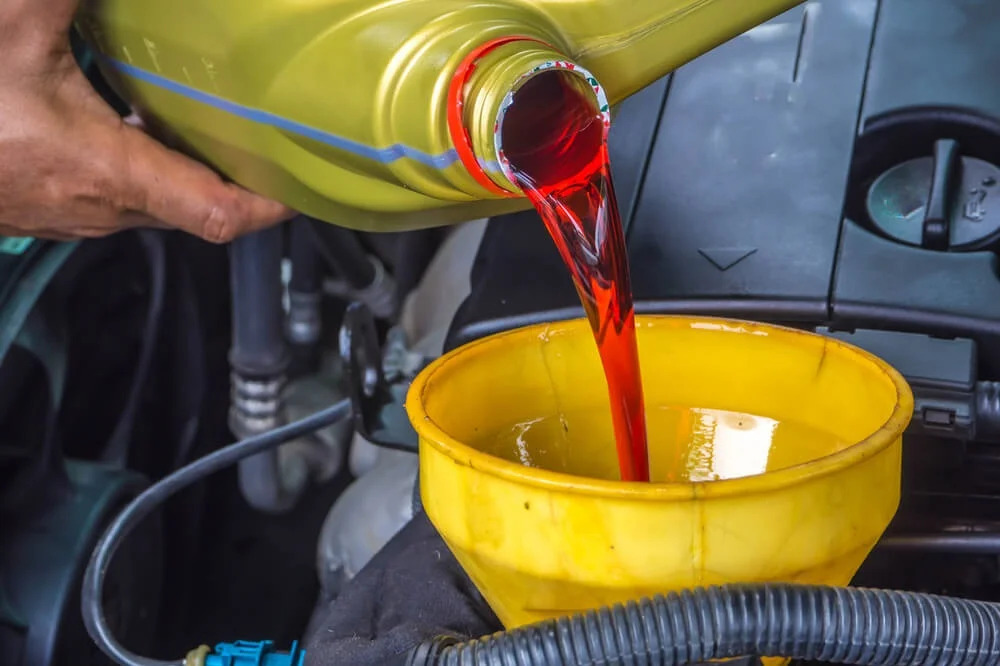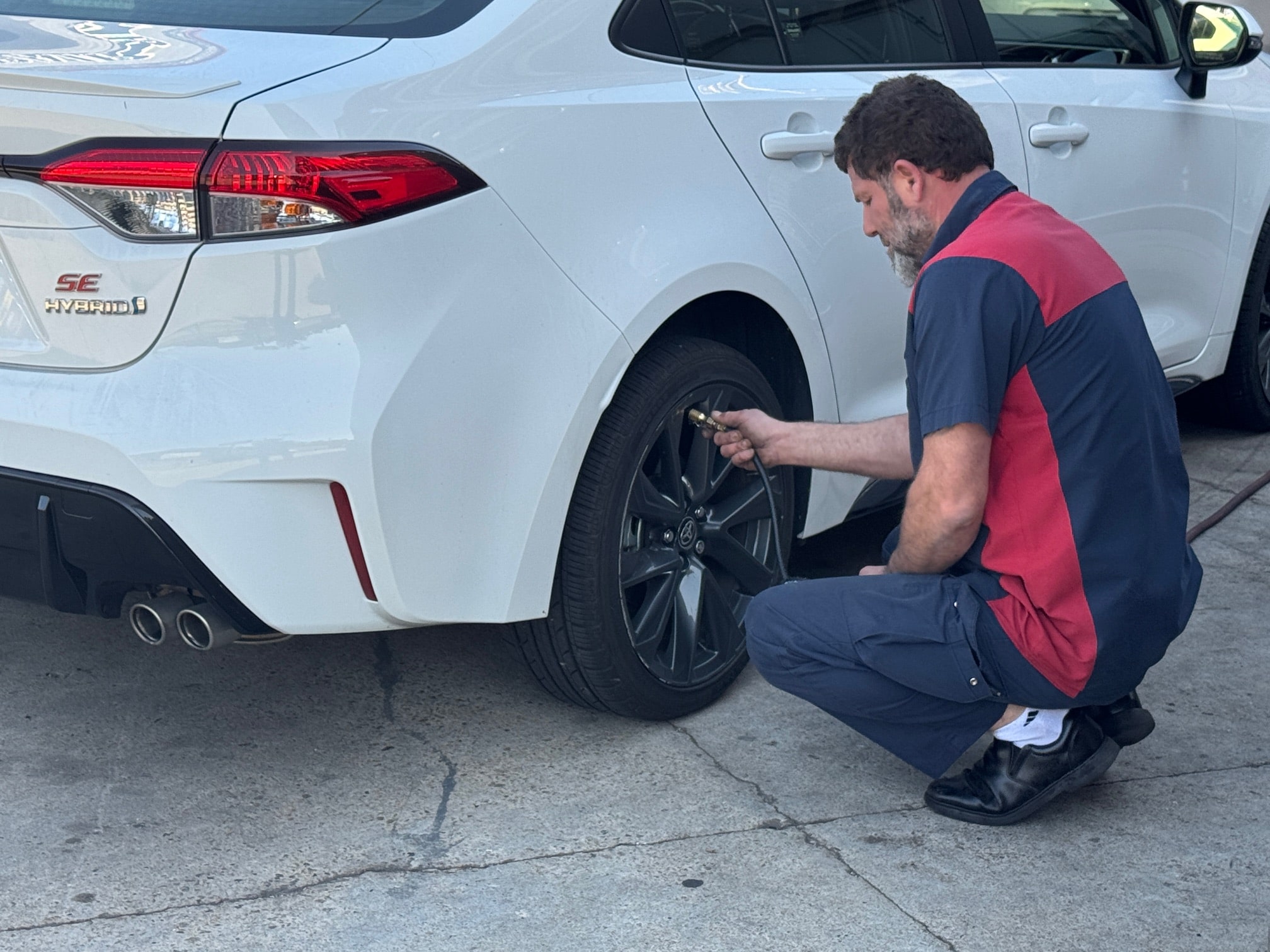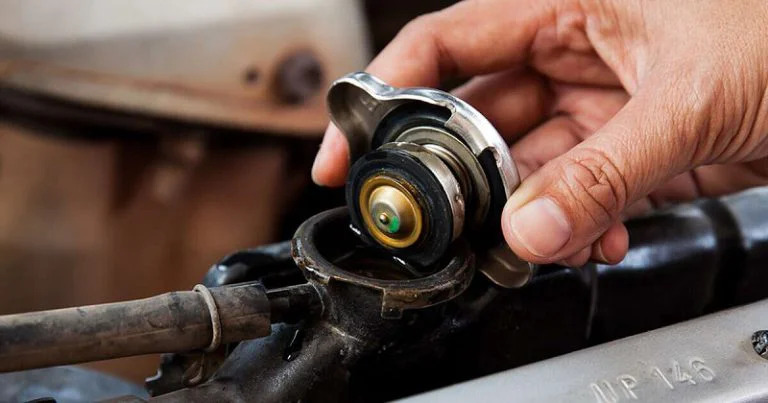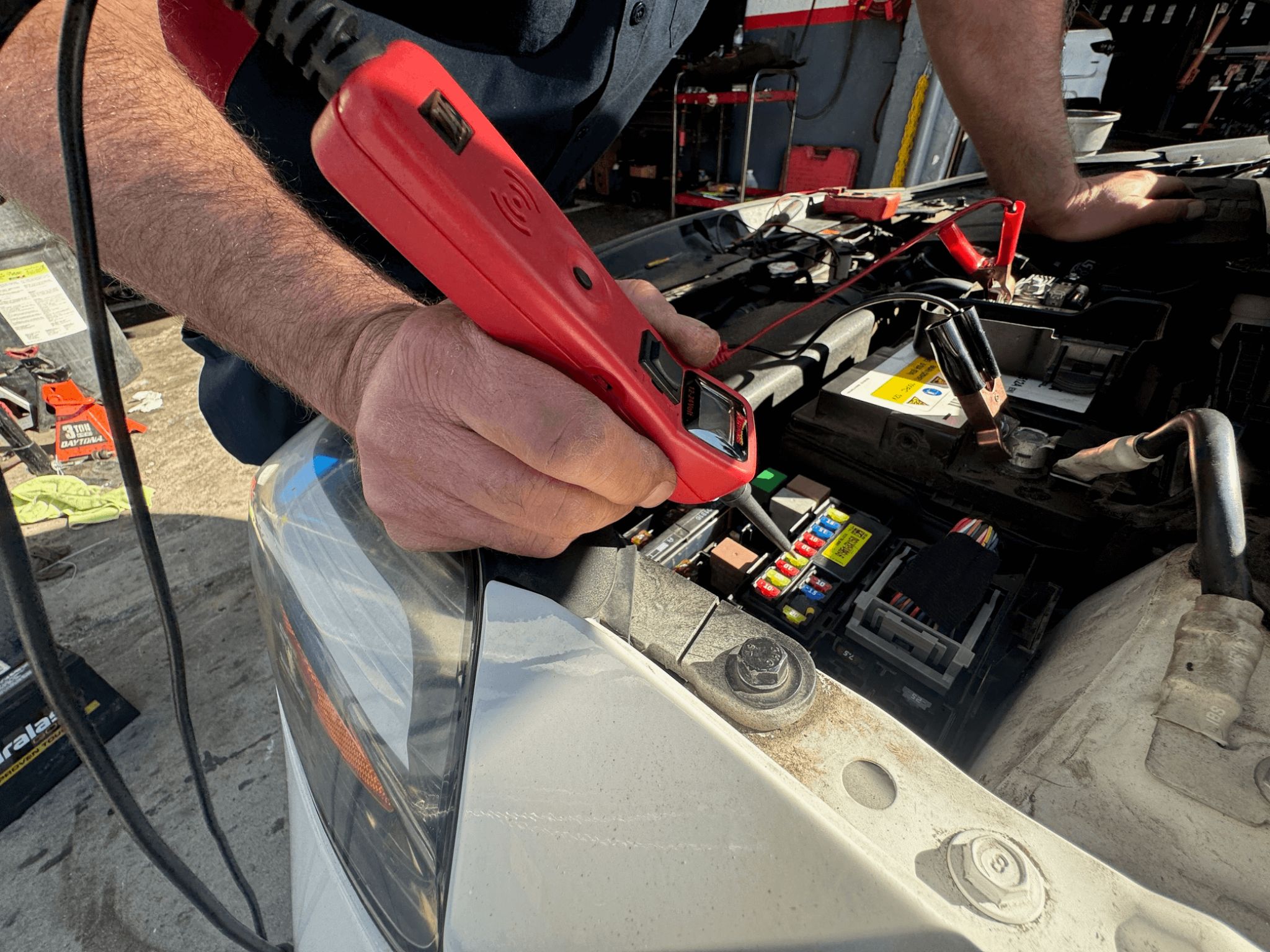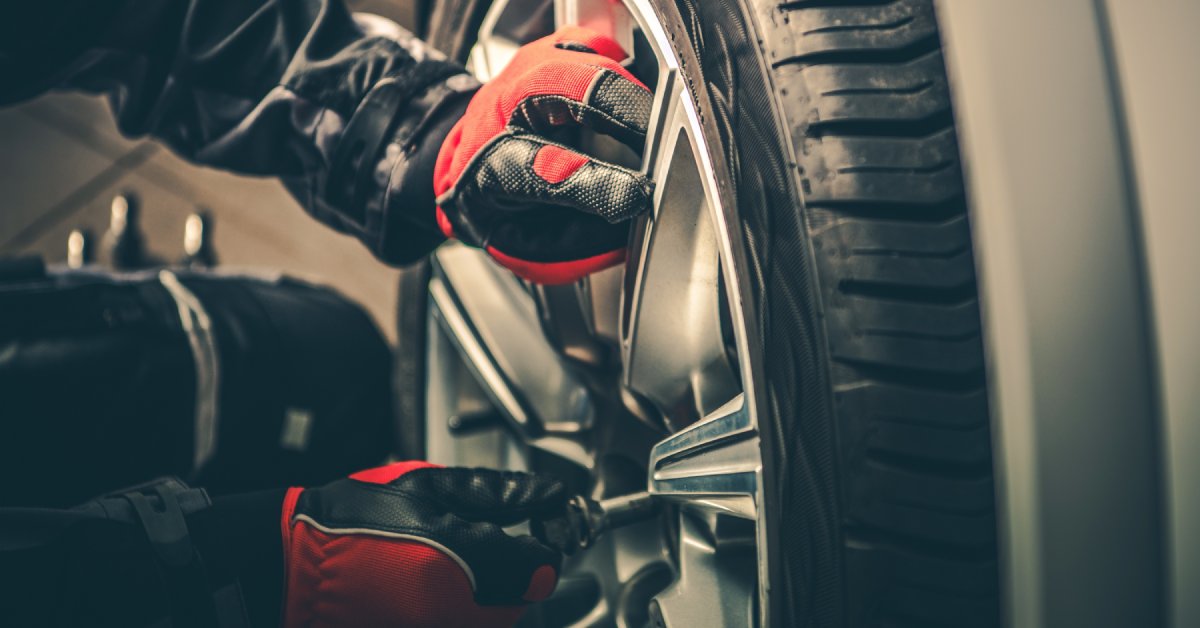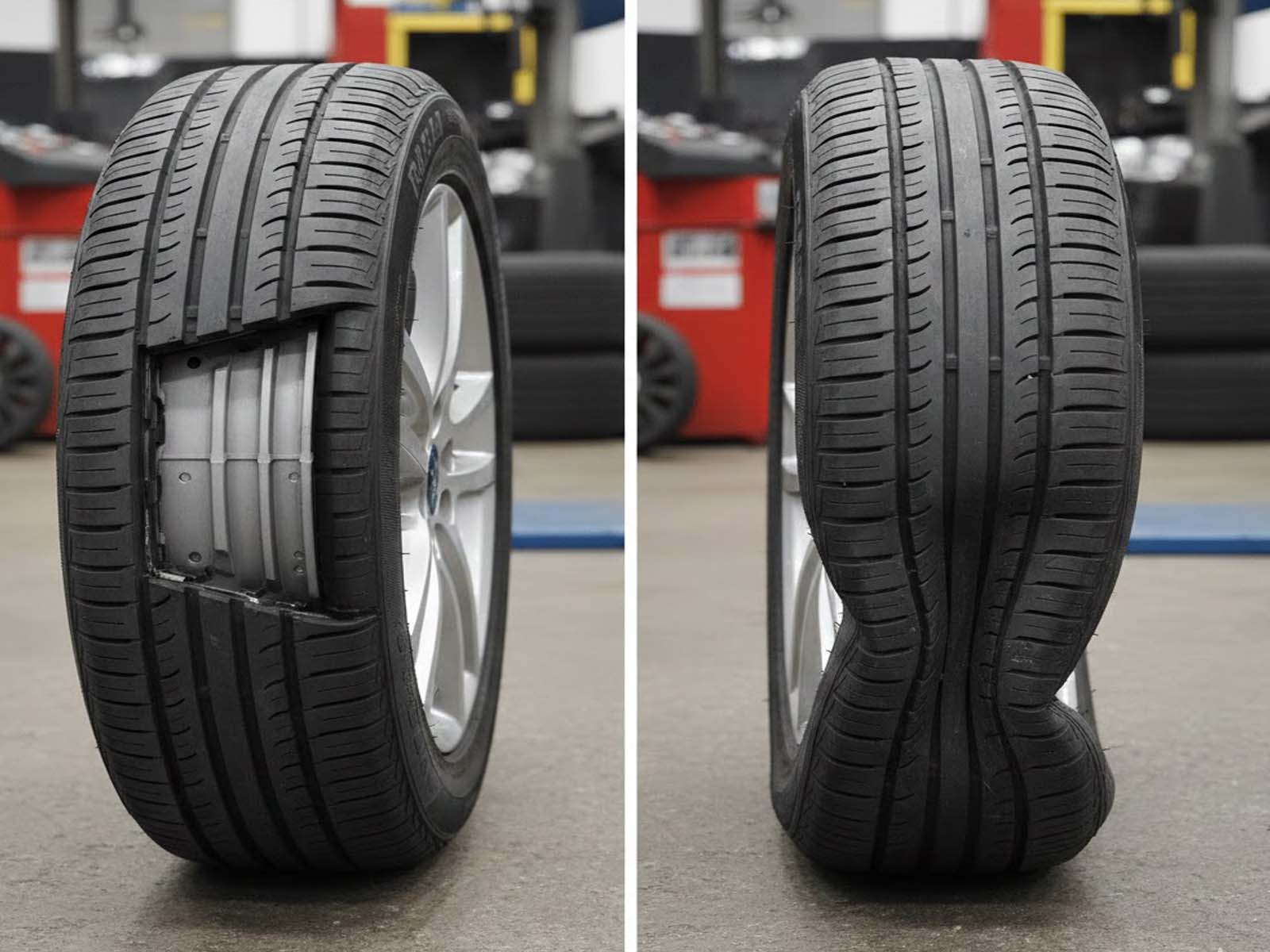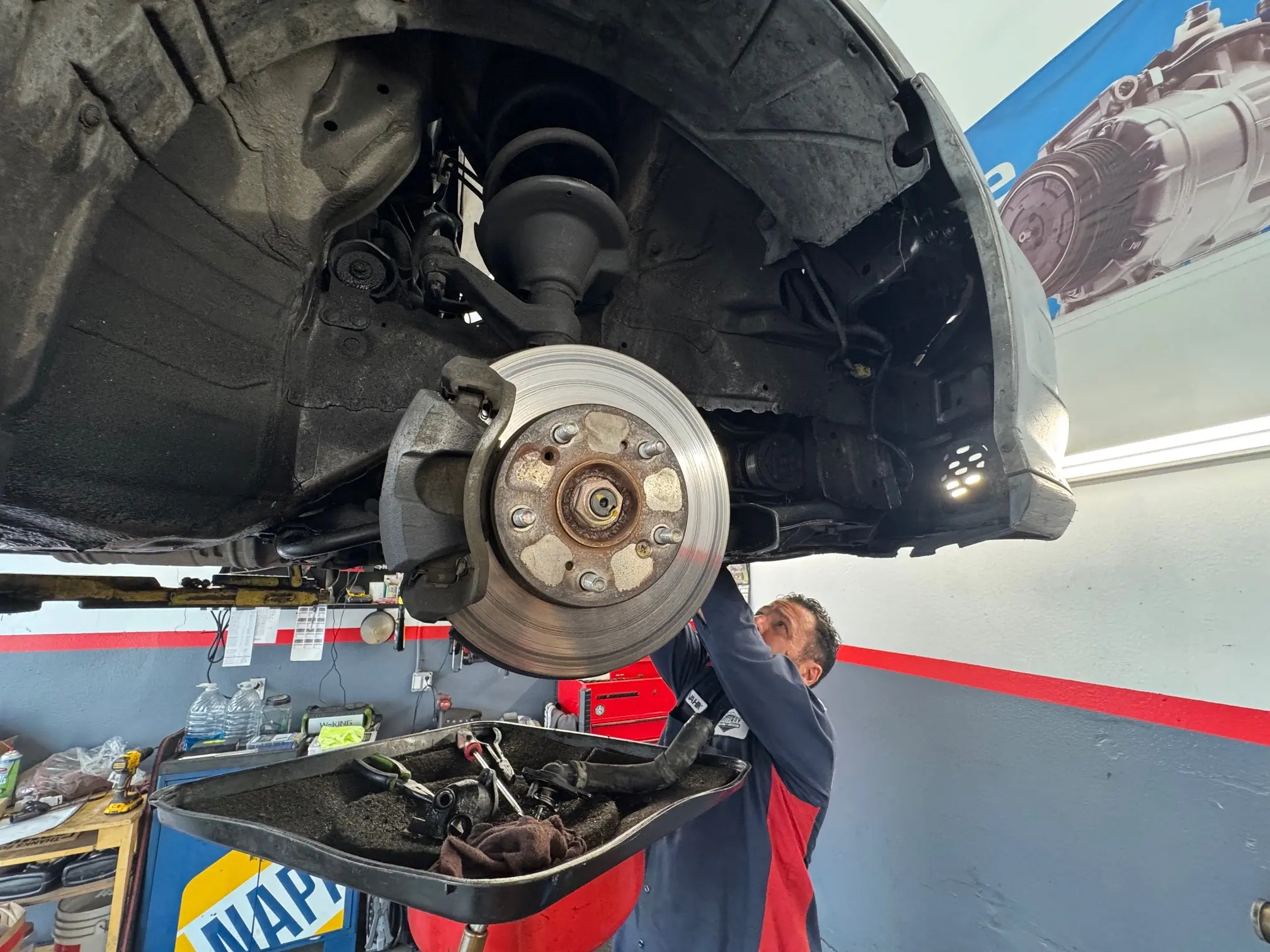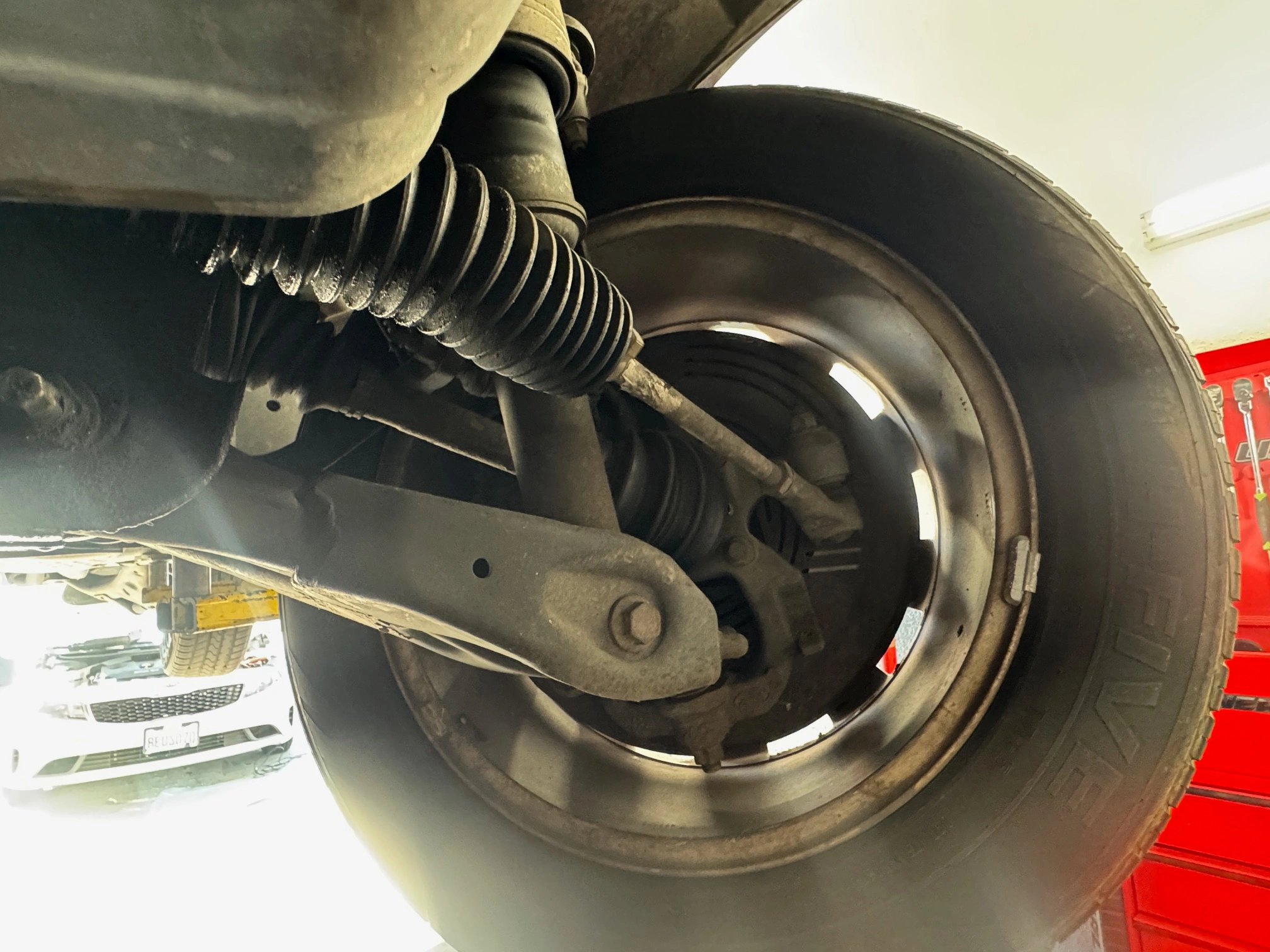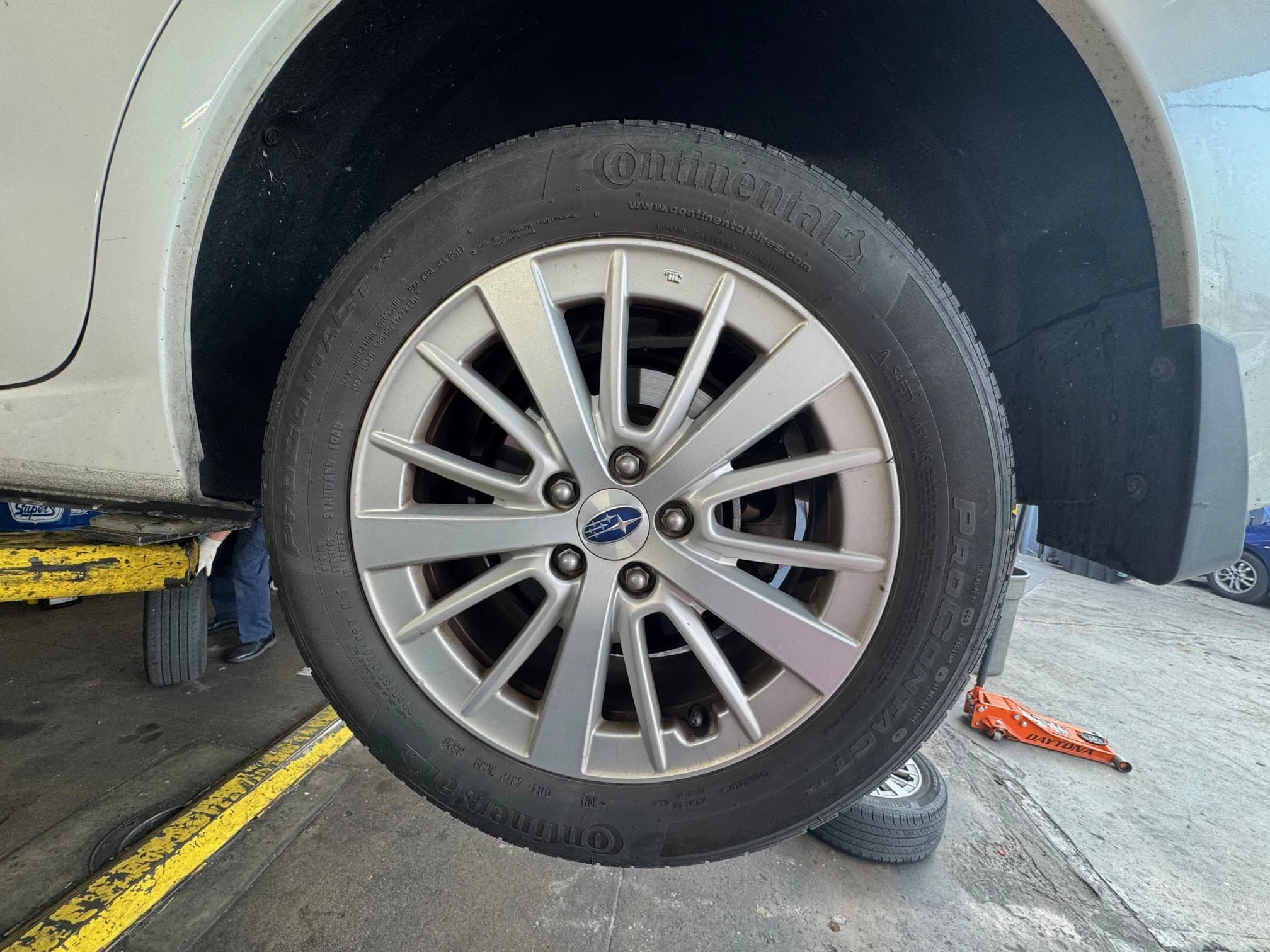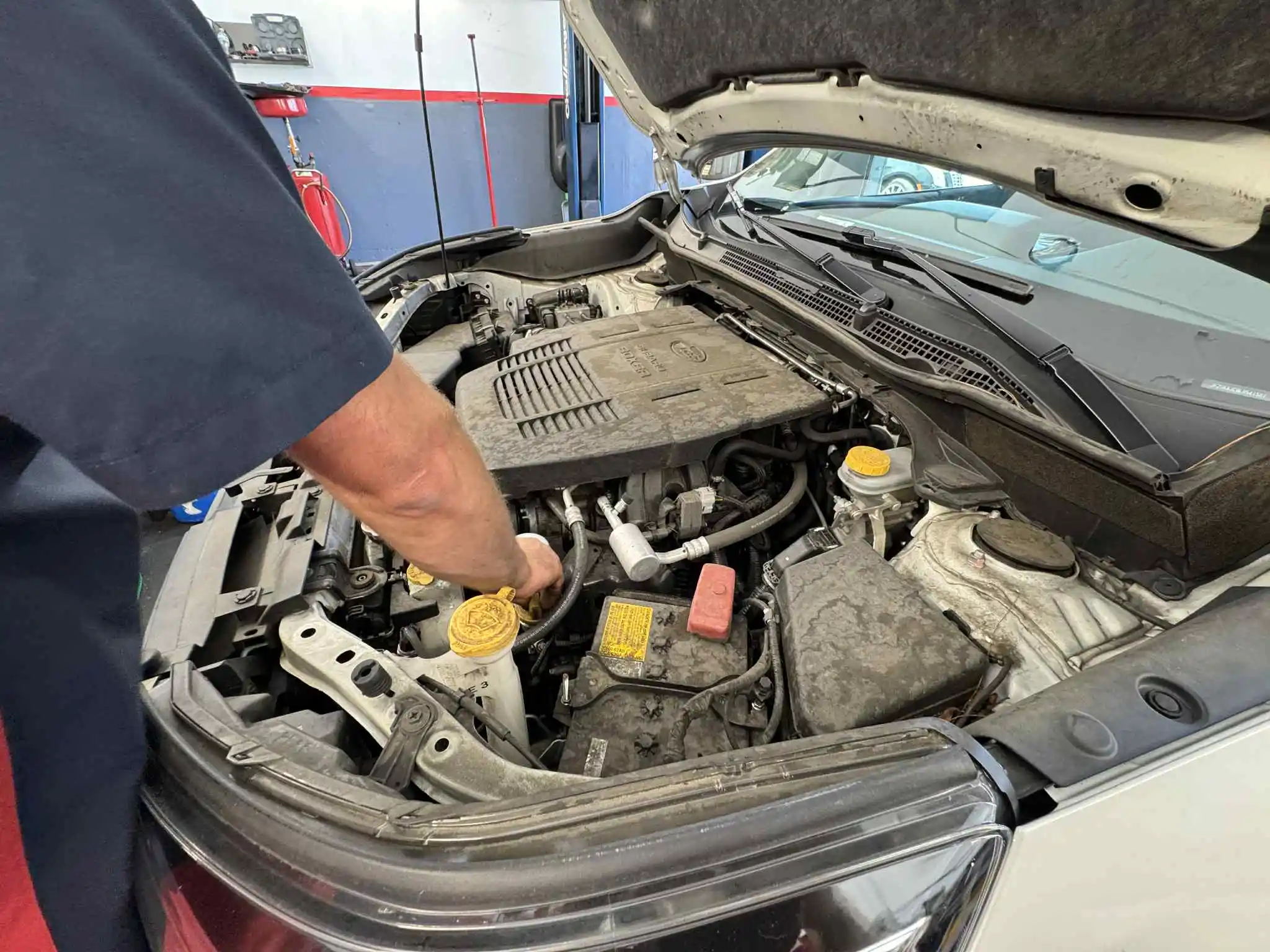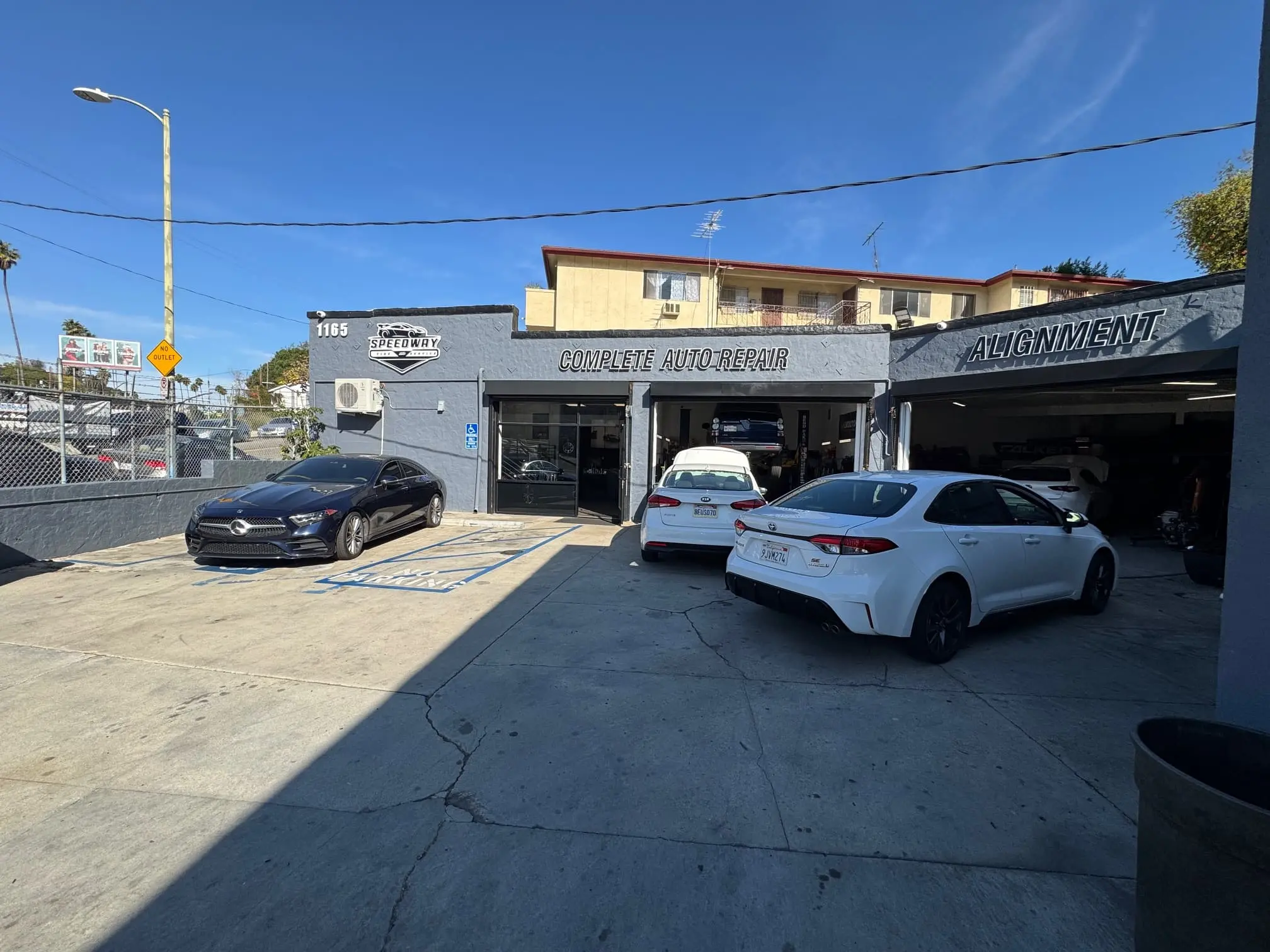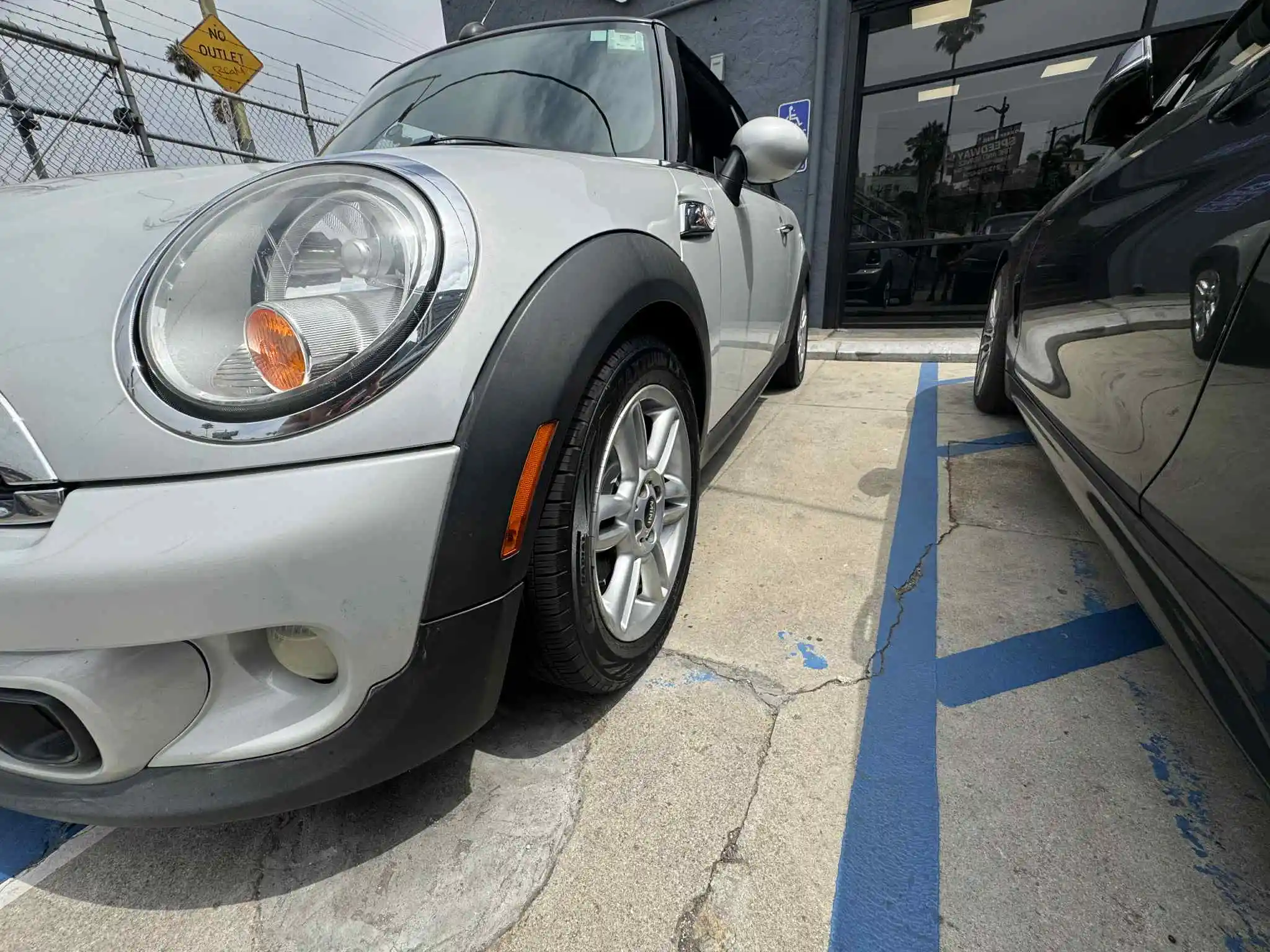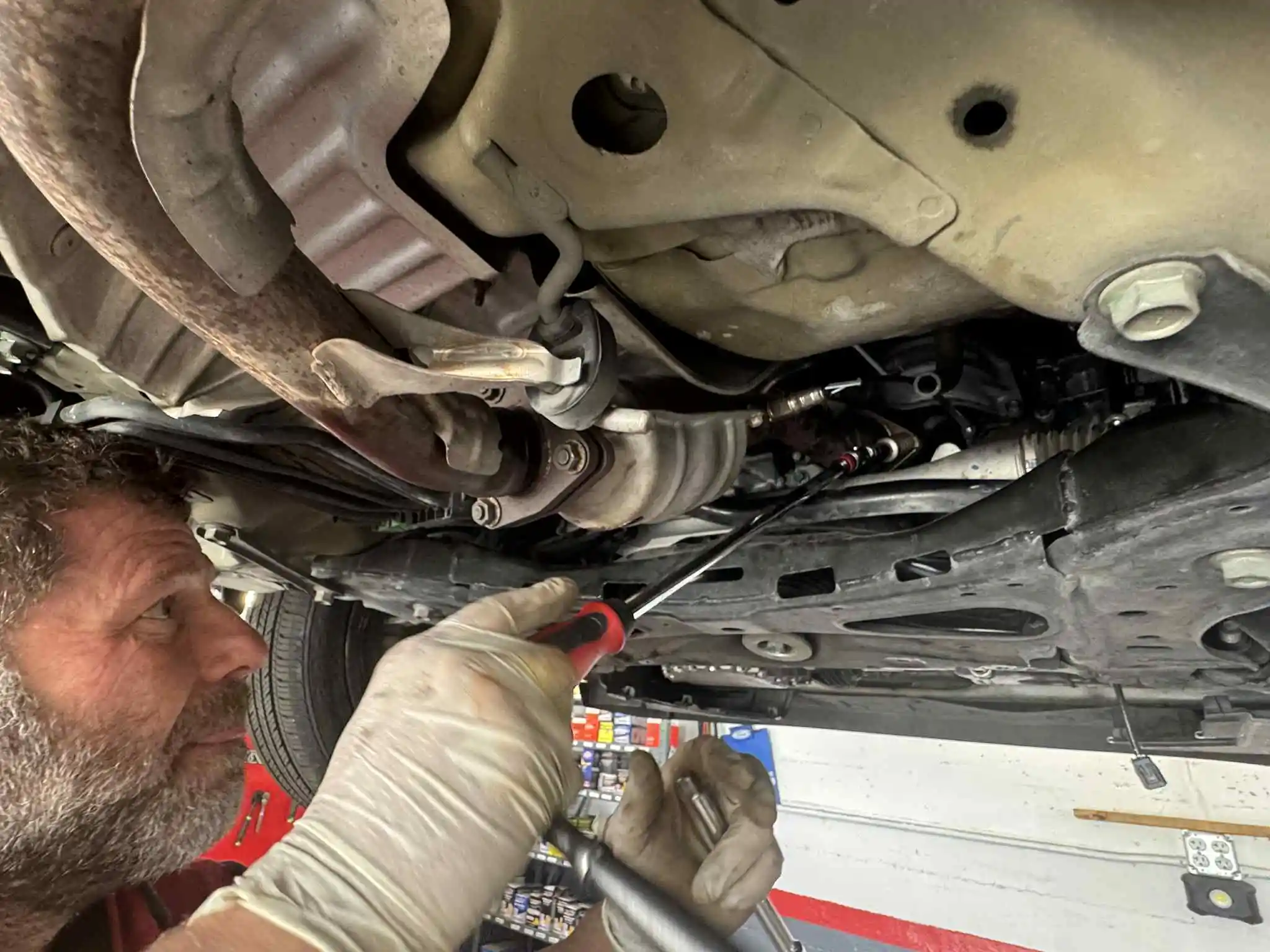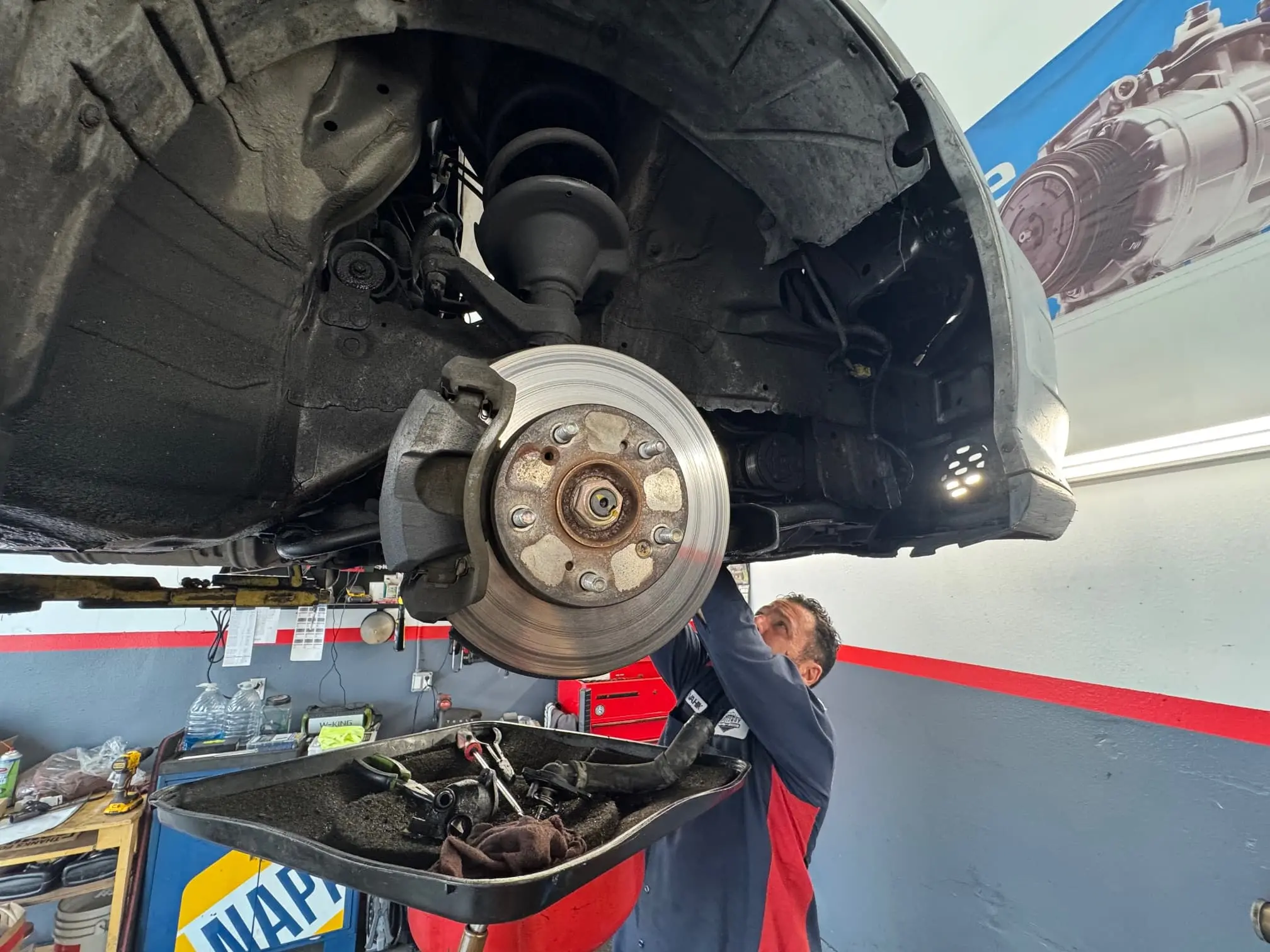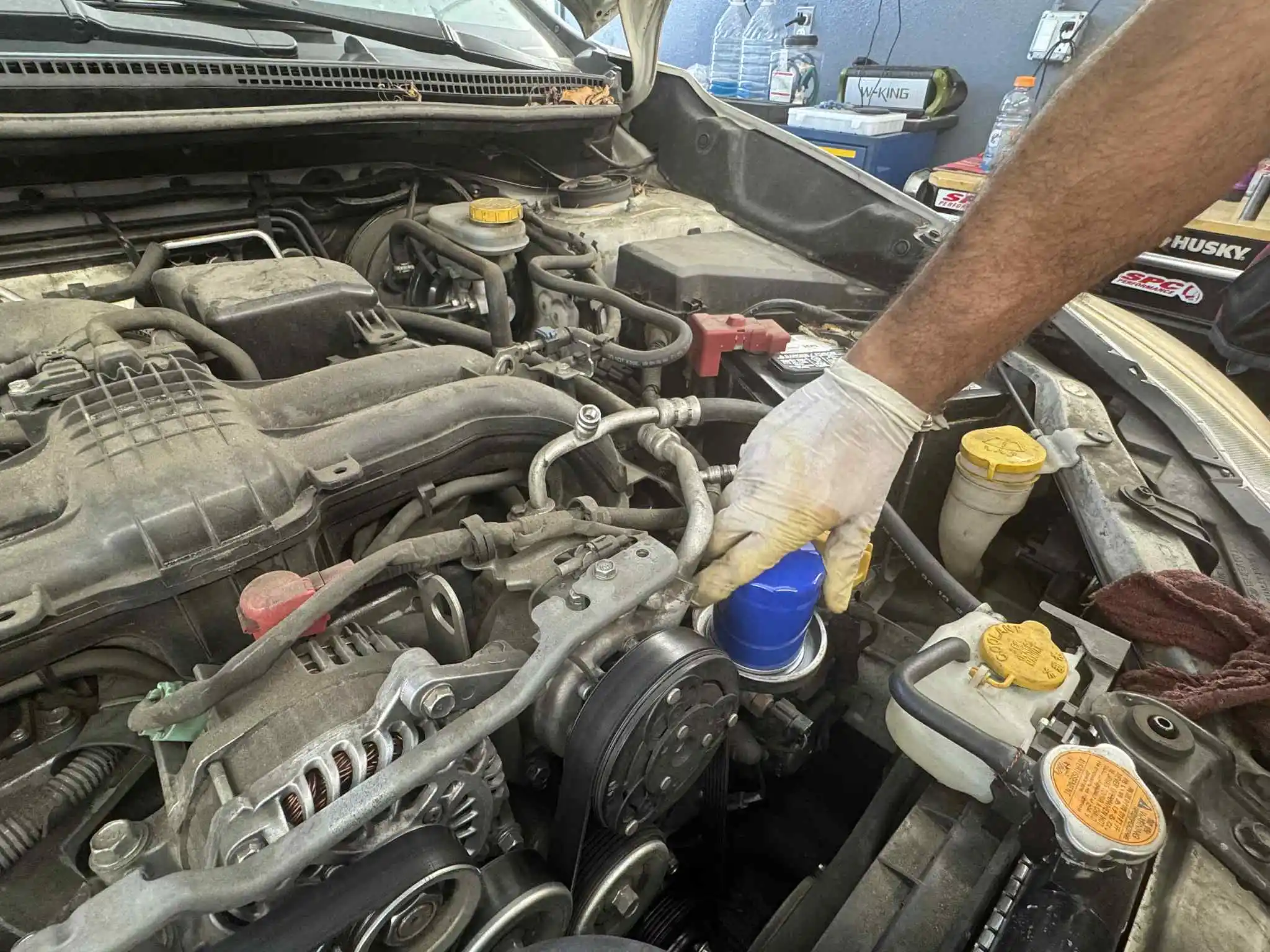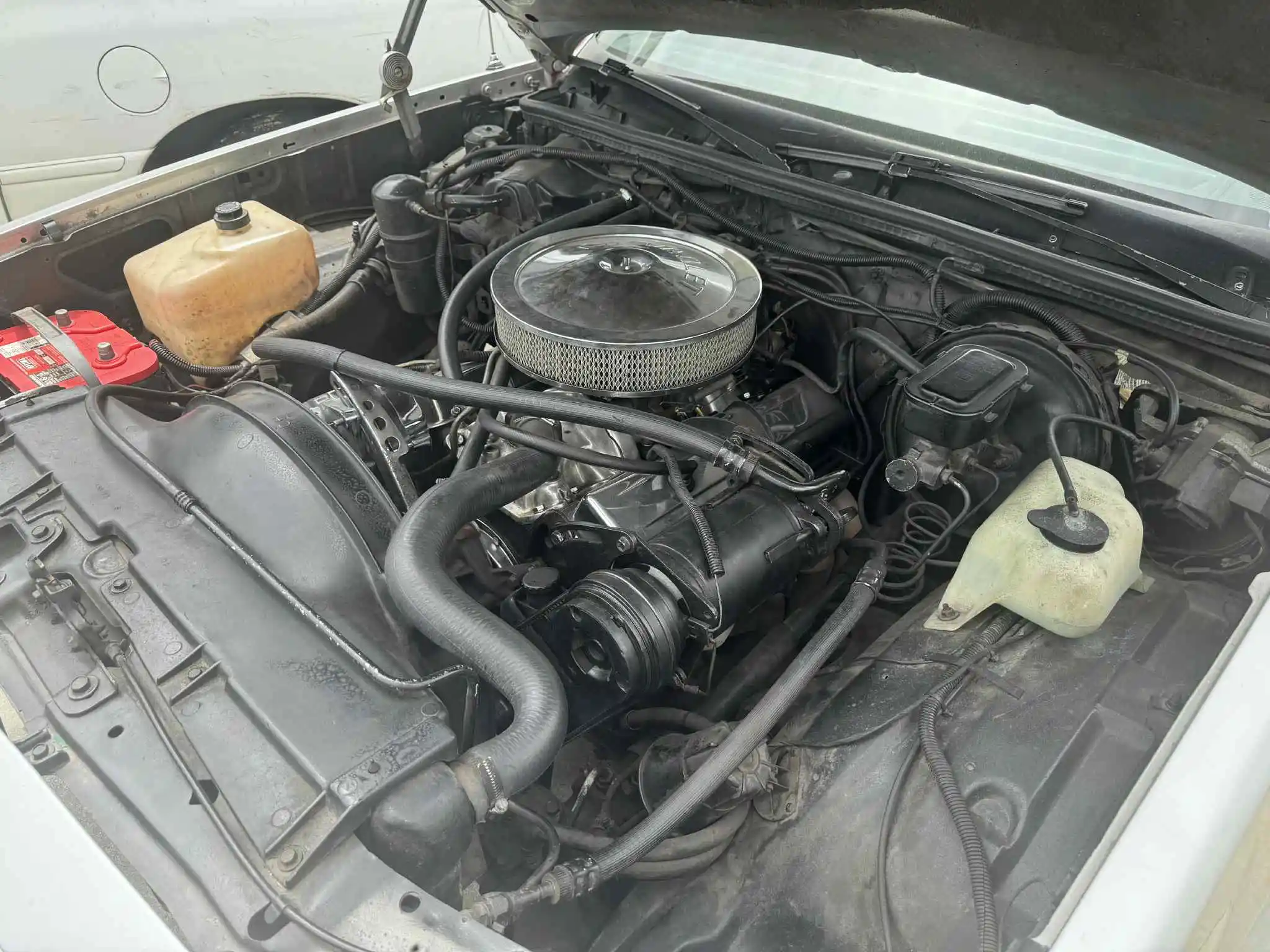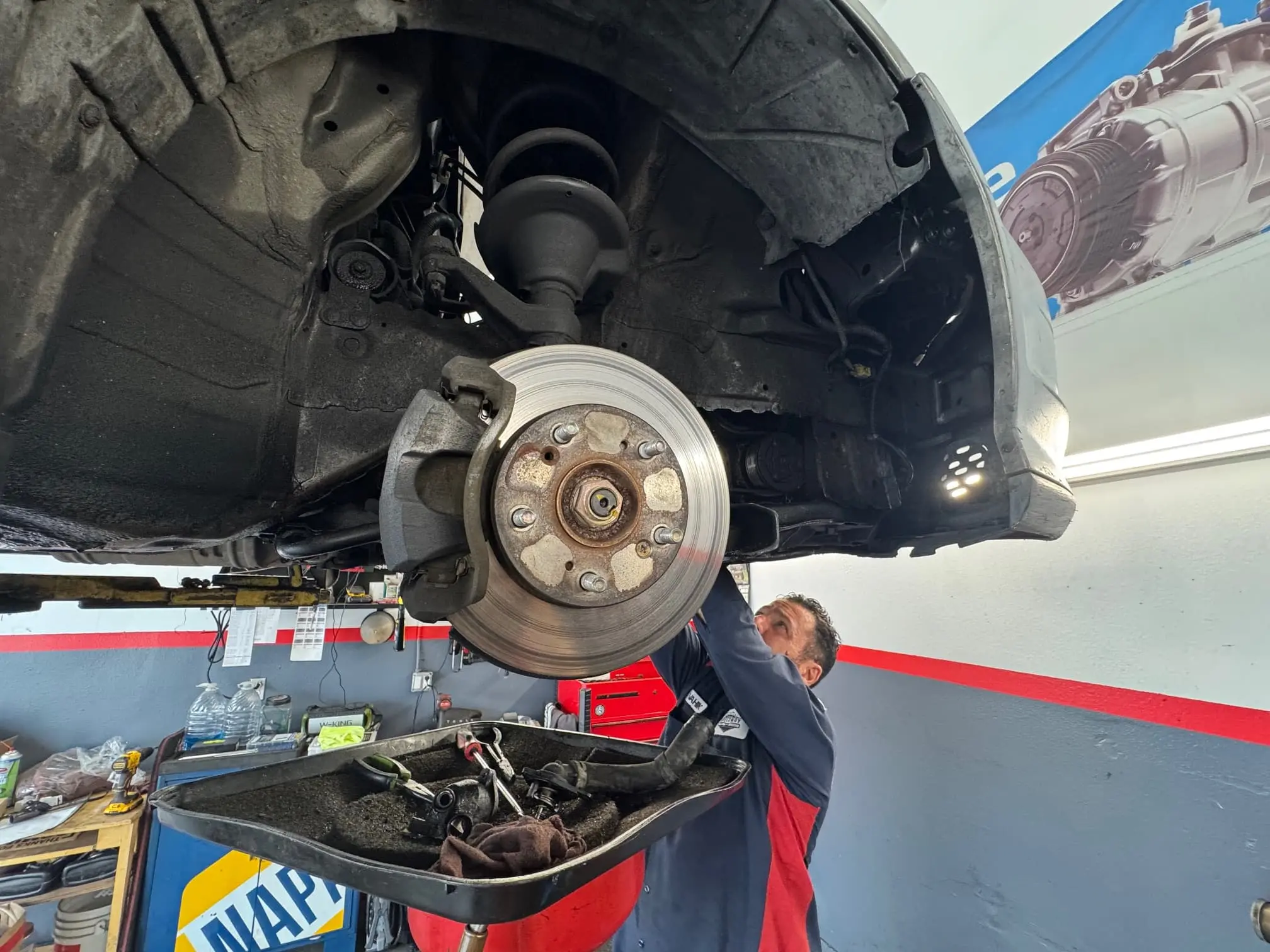LA Driving is Severe Driving: Why Your Oil Change Interval is Shorter
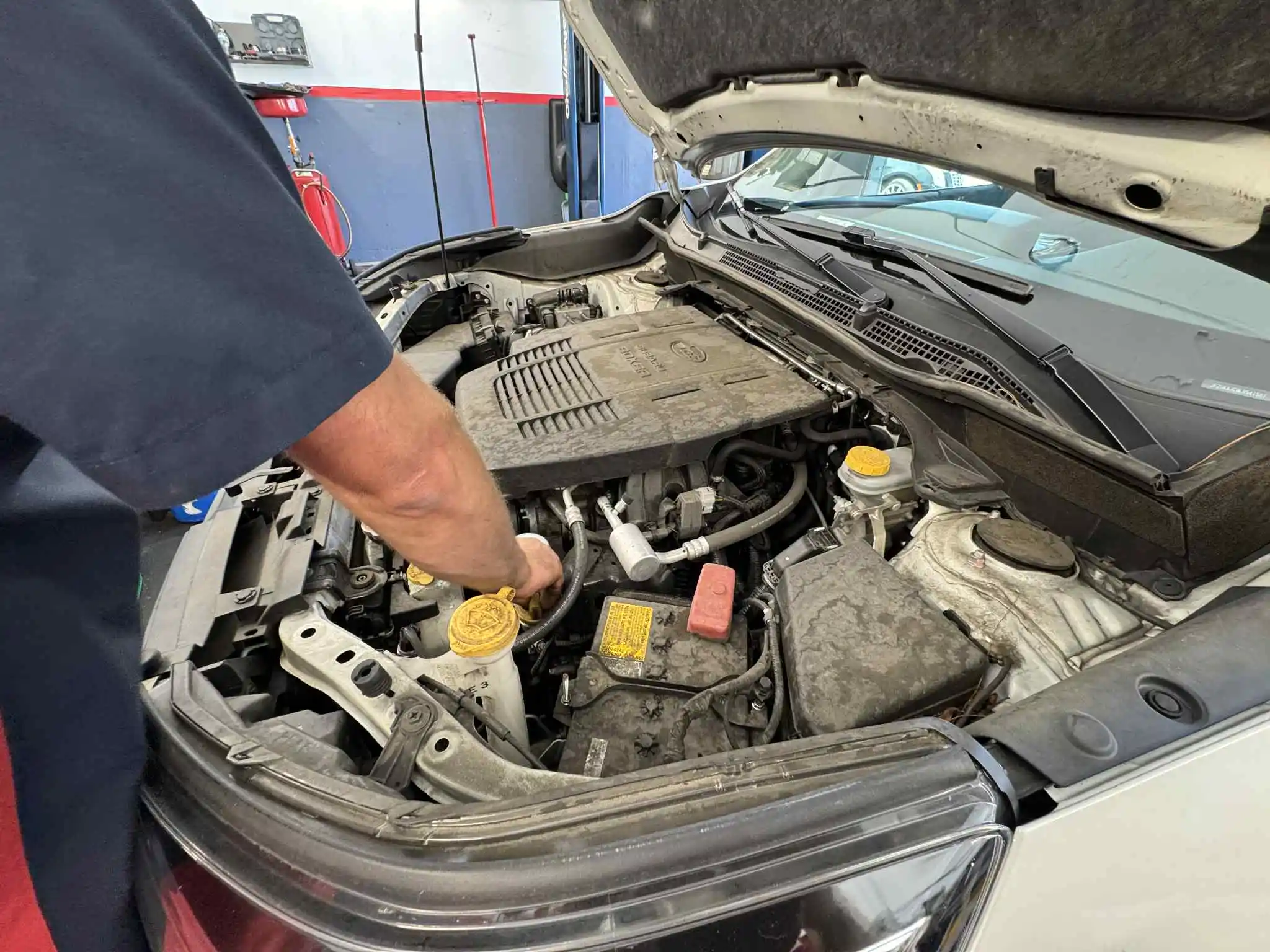
Introduction
Understanding your oil change interval LA requires recognizing that Los Angeles driving conditions qualify as "severe driving" according to automotive manufacturers. Stop-and-go traffic, short trips, extended idling, and extreme temperatures accelerate oil degradation, requiring more frequent oil changes than the standard intervals many drivers follow.
Most vehicle owner's manuals specify two maintenance schedules: "normal" driving and "severe" driving. LA drivers almost universally fall into the severe category due to constant traffic congestion, frequent stops, short commutes, and urban driving patterns. Ignoring this reality and following normal-interval recommendations leads to engine sludge buildup, accelerated wear, reduced fuel efficiency, and potentially catastrophic engine damage.
At Speedway Tire and Service, we've been serving Downtown LA drivers since our founding. We understand the unique demands LA traffic places on vehicles and help drivers maintain proper oil change intervals to protect their engines and maximize vehicle longevity.
In this comprehensive guide, we'll explain why LA driving qualifies as severe, how stop-and-go traffic affects oil change interval LA, the dangers of engine sludge, synthetic vs conventional oil considerations, how to determine your optimal interval, and why Speedway Tire and Service is your trusted partner for oil changes in Downtown LA.
Why LA Driving Qualifies as Severe Driving
Automotive manufacturers define "severe driving conditions" based on specific factors that accelerate vehicle wear and oil degradation. LA driving meets virtually every severe driving criterion.
Stop-and-Go Traffic: The Primary Severe Driving Factor
Stop-and-go traffic dominates LA driving experiences. Whether commuting on the 110, navigating downtown streets, or sitting in rush hour on the 10, LA drivers spend significant time accelerating, braking, and idling.
Why Stop-and-Go Traffic is Severe: Constant acceleration and deceleration prevents engines from reaching and maintaining optimal operating temperatures. Engines run less efficiently in these conditions, producing more combustion byproducts that contaminate oil. Frequent braking and acceleration also increase engine stress and heat generation.
Oil Impact: Stop-and-go traffic accelerates oil contamination with fuel, moisture, and combustion byproducts. Oil breaks down faster under these conditions, losing its protective properties more quickly than during steady highway driving.
Short Trips: Moisture and Contamination
Many LA drivers make frequent short trips—commuting a few miles to work, running errands around downtown, or making quick trips across neighborhoods.
Why Short Trips are Severe: Engines need 10-15 minutes of continuous operation to reach full operating temperature and evaporate moisture from combustion. Short trips prevent this, allowing moisture to accumulate in oil.
Oil Impact: Moisture in oil creates sludge, reduces lubrication effectiveness, and promotes corrosion. Short trips also prevent oil from getting hot enough to burn off fuel contamination.
Extended Idling: Heat Without Movement
LA traffic often means extended idling—sitting at long red lights, waiting in drive-throughs, or stuck in gridlock.
Why Extended Idling is Severe: Idling generates engine heat without the cooling airflow that occurs during highway driving. Oil circulates continuously but doesn't benefit from the cooling effect of movement.
Oil Impact: Extended idling accelerates oil temperature rise and thermal breakdown. Hot oil degrades faster, losing viscosity and protective additives.
Extreme Temperatures: Heat Stress
LA's hot summers subject engines to extreme heat stress, particularly in traffic where airflow is minimal.
Why Extreme Heat is Severe: High ambient temperatures increase engine operating temperatures. Engines work harder to maintain proper temperatures, placing additional stress on oil.
Oil Impact: Heat accelerates oil oxidation and thermal breakdown. Hot oil loses viscosity faster, reducing its ability to protect engine components.
Dusty Conditions: Contamination Concerns
LA's urban environment, construction activity, and dry conditions create dusty driving environments.
Why Dusty Conditions are Severe: Dust and particulates enter engines through air intake systems. Even with air filters, fine particles can contaminate oil.
Oil Impact: Particulate contamination turns oil into an abrasive slurry that accelerates engine wear rather than preventing it.
How Stop-and-Go Traffic Affects Oil Change Interval LA
Stop-and-go traffic is the dominant factor reducing oil change interval LA. Understanding the specific mechanisms helps drivers appreciate why more frequent changes are essential.
Incomplete Combustion and Fuel Dilution
Stop-and-go traffic prevents engines from reaching and maintaining optimal combustion temperatures. This leads to incomplete fuel combustion.
The Problem: Unburned fuel escapes past piston rings and contaminates oil. This fuel dilution reduces oil viscosity and lubricating properties.
The Result: Thinner, contaminated oil provides inadequate protection. Engine wear accelerates. Fuel-contaminated oil also has lower flash points, increasing fire risk.
Oil Change Impact: Fuel dilution accelerates oil degradation, requiring more frequent changes to maintain protection.
Moisture Accumulation and Sludge Formation
Short trips and stop-and-go traffic prevent engines from getting hot enough to evaporate moisture produced during combustion.
The Problem: Water vapor from combustion condenses in the engine and mixes with oil. This moisture combines with combustion byproducts to form sludge.
The Result: Engine sludge clogs oil passages, restricts flow to critical components, and accelerates wear. Severe sludge buildup can cause complete engine failure.
Oil Change Impact: Moisture contamination requires more frequent oil changes to prevent sludge formation.
Increased Engine Heat and Thermal Breakdown
Stop-and-go traffic generates significant engine heat without the cooling benefit of highway speeds.
The Problem: Repeated acceleration creates heat spikes. Idling in traffic prevents adequate cooling. Oil temperatures rise above optimal ranges.
The Result: High temperatures cause oil to oxidize and break down thermally. Oxidized oil forms varnish and deposits on engine components. Thermal breakdown reduces oil viscosity and protective properties.
Oil Change Impact: Thermal stress accelerates oil degradation, requiring more frequent changes.
Increased Wear from Frequent Starts and Stops
Every engine start creates a brief period of metal-on-metal contact before oil pressure builds. Stop-and-go traffic multiplies these wear events.
The Problem: LA drivers start and stop engines far more frequently than highway drivers. Each start creates wear.
The Result: Accumulated wear from thousands of starts significantly impacts engine longevity. Contaminated or degraded oil exacerbates this wear.
Oil Change Impact: Frequent starts require fresh, clean oil to minimize wear during critical startup periods.
Engine Sludge: The Silent Engine Killer
Engine sludge represents one of the most serious consequences of extended oil change intervals in LA driving conditions.
What is Engine Sludge?
Engine sludge is a thick, gel-like substance formed when oil breaks down and combines with moisture, fuel, dirt, and combustion byproducts.
Composition: Oxidized oil, water vapor, unburned fuel, carbon particles, and metal wear particles combine to form sludge.
Appearance: Thick, dark, tar-like substance that coats engine components and clogs oil passages.
Formation: Sludge forms gradually as oil degrades. Stop-and-go traffic, short trips, and extended intervals accelerate formation.
How Sludge Damages Engines
Sludge causes progressive engine damage through multiple mechanisms.
Restricted Oil Flow: Sludge clogs oil passages, screens, and pickup tubes. This restricts oil flow to critical engine components like camshafts, crankshafts, and valve trains.
Inadequate Lubrication: Restricted oil flow means components don't receive adequate lubrication. Metal-on-metal contact increases, accelerating wear.
Overheating: Sludge acts as insulation, preventing proper heat dissipation. Localized overheating damages components.
Valve Train Damage: Sludge in valve trains prevents proper valve operation. This reduces engine performance and can cause catastrophic failure.
Oil Starvation: Severe sludge can completely block oil pickup tubes, causing total oil starvation and immediate engine seizure.
Preventing Engine Sludge
Preventing sludge requires appropriate oil change intervals for LA driving conditions.
Frequent Oil Changes: Follow severe-service intervals (typically 3,000-5,000 miles for conventional oil, 5,000-7,500 miles for synthetic).
Quality Oil: Use manufacturer-recommended oil grades and quality brands with robust additive packages.
Synthetic Oil: Consider synthetic oil for superior resistance to thermal breakdown and sludge formation.
Longer Drives: Occasionally take longer highway drives to allow engines to reach full operating temperature and burn off moisture.
Regular Maintenance: Maintain proper air filtration and fuel system cleanliness to reduce contamination.
At Speedway Tire and Service, we've seen countless engines damaged by sludge from extended oil change intervals. We help LA drivers maintain proper intervals to prevent this expensive damage.
Call (213) 250-4254 to schedule your oil change at our Downtown LA location: 1165 West Sunset Blvd.
Synthetic vs Conventional Oil: Which is Better for LA Driving?
Choosing between synthetic and conventional oil significantly impacts oil change interval LA and engine protection.
Conventional Oil: Traditional Protection
Conventional oil is refined from crude petroleum and contains additive packages to enhance performance.
Advantages:
•Lower upfront cost per oil change
•Adequate protection for engines in good condition under normal driving
•Widely available and compatible with all engines
Disadvantages:
•Breaks down faster under severe driving conditions
•More susceptible to thermal degradation
•Forms sludge more readily
•Requires more frequent changes in LA driving conditions
•Less effective at extreme temperatures
Oil Change Interval: Conventional oil in LA driving conditions typically requires changes every 3,000-5,000 miles.
Synthetic Oil: Superior Protection
Synthetic oil is engineered from chemical compounds designed for superior performance.
Advantages:
•Superior resistance to thermal breakdown
•Better protection at extreme temperatures
•Reduced sludge formation
•Extended oil change intervals even in severe conditions
•Better fuel efficiency
•Superior cold-weather starting
•Longer engine life
Disadvantages:
•Higher upfront cost per oil change
•Not necessary for all vehicles (though beneficial for most)
Oil Change Interval: Synthetic oil in LA driving conditions typically allows 5,000-7,500 mile intervals (consult your owner's manual and oil analysis).
Synthetic Blend: Middle Ground
Synthetic blend oil combines conventional and synthetic oils, offering improved performance at moderate cost.
Advantages:
•Better than conventional oil
•More affordable than full synthetic
•Good compromise for budget-conscious drivers
Disadvantages:
•Not as effective as full synthetic
•Still requires relatively frequent changes in severe conditions
Oil Change Interval: Synthetic blend in LA driving conditions typically requires changes every 4,000-6,000 miles.
Our Recommendation for LA Drivers
For LA driving conditions, synthetic oil provides the best protection and value despite higher upfront costs.
Why Synthetic Wins: The extended intervals possible with synthetic oil offset the higher per-change cost. Superior protection reduces engine wear and extends engine life. Better thermal stability handles LA's stop-and-go heat stress.
Cost Analysis: While synthetic costs more per change, fewer annual changes often result in similar or lower total annual costs. The added engine protection provides additional value through extended engine life and reduced repair costs.
At Speedway Tire and Service, we help LA drivers choose the right oil for their vehicles and driving conditions. We stock quality conventional, synthetic blend, and full synthetic oils.
Call (213) 250-4254 to discuss which oil is best for your vehicle.
Determining Your Optimal Oil Change Interval LA
Your optimal oil change interval depends on your specific vehicle, oil type, and driving patterns.
Consult Your Owner's Manual
Start with your vehicle's owner's manual, but pay attention to the severe-service schedule.
Normal vs Severe: Most manuals specify different intervals for normal and severe driving. LA drivers should follow severe-service intervals.
Severe Driving Indicators: Your manual likely defines severe driving as including:
•Frequent short trips (less than 5 miles)
•Stop-and-go traffic
•Extended idling
•Dusty conditions
•Extreme temperatures
LA Drivers: If you drive in LA, you almost certainly meet multiple severe driving criteria.
Consider Your Specific Driving Patterns
Evaluate your actual driving to determine appropriate intervals.
Daily Commute: If you commute in LA traffic daily, you're definitely in severe-service territory. Follow the shorter interval recommendations.
Short Trips: If most trips are under 10 miles, use severe-service intervals regardless of other factors.
Highway vs City: If you occasionally take longer highway trips, you might extend intervals slightly, but LA city driving still qualifies as severe.
Parking Conditions: If you park in direct sun regularly, heat stress accelerates oil degradation.
Oil Type Considerations
Your oil type significantly impacts appropriate intervals.
Conventional Oil: 3,000-5,000 miles in LA driving conditions. Lean toward 3,000 miles if you drive primarily in heavy traffic or make frequent short trips.
Synthetic Blend: 4,000-6,000 miles in LA driving conditions.
Full Synthetic: 5,000-7,500 miles in LA driving conditions. Some high-quality synthetics and newer vehicles may safely extend to 10,000 miles, but verify with oil analysis.
Oil Life Monitoring Systems
Many modern vehicles include oil life monitoring systems that calculate optimal change intervals based on actual driving conditions.
How They Work: These systems monitor engine temperature, RPM, operating time, and other factors to calculate oil degradation.
Reliability: Modern oil life monitors are generally accurate and account for severe driving conditions.
Our Recommendation: Trust your oil life monitor if your vehicle has one, but don't exceed manufacturer maximum intervals even if the monitor hasn't triggered.
Oil Analysis: The Scientific Approach
For drivers who want definitive answers, oil analysis provides scientific data about oil condition.
How It Works: Send a small oil sample to a laboratory for analysis. The lab tests for contamination, wear metals, viscosity, and remaining additive levels.
Benefits: Know exactly when your oil needs changing based on actual condition rather than estimates. Identify developing engine problems through wear metal analysis.
Cost: Analysis typically costs $25-40 per sample but provides valuable data.
When to Use: Consider oil analysis if you want to optimize intervals, drive a high-value vehicle, or suspect engine problems.
At Speedway Tire and Service, we help LA drivers determine appropriate oil change intervals based on their specific vehicles and driving patterns.
Call (213) 250-4254 to discuss your optimal interval.
Signs You've Waited Too Long for an Oil Change
Recognizing signs of overdue oil changes helps prevent engine damage.
Dark, Dirty Oil
Fresh oil is amber-colored and translucent. Oil turns dark as it accumulates combustion byproducts and contaminants.
What to Look For: Check your oil dipstick. If oil is very dark or opaque, it's overdue for changing.
Why It Matters: Dark oil indicates high contamination levels. Contaminated oil provides inadequate protection.
Low Oil Level
Oil consumption increases as oil degrades and engines wear.
What to Look For: Check your dipstick regularly. If oil level drops between changes, you're either consuming oil or have a leak.
Why It Matters: Low oil levels mean inadequate lubrication. Running low on oil accelerates wear and can cause catastrophic damage.
Engine Noise
Degraded oil loses viscosity and protective properties, leading to increased engine noise.
What to Look For: Ticking, knocking, or rattling sounds from the engine, particularly at startup or idle.
Why It Matters: Engine noise indicates inadequate lubrication. Metal components are making contact, causing wear.
Oil Change Light or Check Engine Light
Modern vehicles monitor oil condition and alert drivers when changes are needed.
What to Look For: Oil change reminder light or check engine light illuminated.
Why It Matters: These systems are designed to prevent engine damage. Ignoring warnings leads to expensive repairs.
Reduced Fuel Efficiency
Degraded oil increases engine friction, reducing fuel efficiency.
What to Look For: Noticeable decrease in miles per gallon without other explanation.
Why It Matters: Reduced efficiency indicates increased engine friction from inadequate lubrication.
Oil Smells Like Gasoline
Fuel dilution from incomplete combustion creates a gasoline smell in oil.
What to Look For: Smell your dipstick. If oil smells strongly of gasoline, you have significant fuel dilution.
Why It Matters: Fuel-diluted oil has reduced viscosity and protective properties. This indicates severe driving conditions requiring immediate oil change.
If you notice any of these signs, schedule an oil change immediately. At Speedway Tire and Service, we provide fast, professional oil changes for LA drivers.
Call (213) 250-4254 or visit us at 1165 West Sunset Blvd, Downtown LA.
The True Cost of Skipping Oil Changes
Skipping or delaying oil changes to save money is false economy that leads to far greater expenses.
Engine Wear and Reduced Lifespan
Inadequate lubrication from degraded oil accelerates engine wear.
The Impact: Worn engines lose compression, consume oil, and eventually fail. What could have been a 200,000+ mile engine might fail at 100,000 miles.
The Cost: Engine replacement or rebuild can exceed $5,000-10,000 depending on the vehicle.
Reduced Fuel Efficiency
Degraded oil increases engine friction, reducing fuel efficiency.
The Impact: Even a 5-10% reduction in fuel efficiency costs hundreds of dollars annually in extra fuel.
The Cost: Over time, reduced efficiency can cost more than regular oil changes would have.
Catalytic Converter Damage
Oil burning from worn engines damages catalytic converters.
The Impact: Contaminated oil that burns produces emissions that clog and damage catalytic converters.
The Cost: Catalytic converter replacement costs $1,000-3,000 or more.
Complete Engine Failure
Severe oil degradation or sludge buildup can cause complete engine failure.
The Impact: Oil starvation from clogged passages causes immediate engine seizure. This is catastrophic and irreparable.
The Cost: Engine replacement is the only solution, costing thousands of dollars.
Voided Warranty
Failing to maintain proper oil change intervals voids manufacturer warranties.
The Impact: If engine problems occur and you can't document proper maintenance, warranty coverage is denied.
The Cost: You pay for repairs that would have been covered under warranty.
Regular oil changes are the cheapest insurance against expensive engine repairs. At Speedway Tire and Service, we help LA drivers protect their investments through proper maintenance.
Call (213) 250-4254 to schedule your oil change.
Why Choose Speedway Tire and Service for Oil Changes in Downtown LA
When you need an oil change in Downtown LA, Speedway Tire and Service provides fast, professional service you can trust.
Convenient Downtown LA Location
We're located at 1165 West Sunset Blvd in Downtown LA, easily accessible for city drivers.
Easy Access: Convenient location near major routes and downtown destinations.
Quick Service: We understand LA drivers' time is valuable. We complete most oil changes quickly without appointments.
While You Wait: Comfortable waiting area or drop off your vehicle and we'll call when it's ready.
Experienced Technicians
Our technicians understand LA driving conditions and how they impact vehicle maintenance needs.
Expertise: Years of experience servicing vehicles in LA's severe driving conditions.
Proper Recommendations: We help you choose appropriate oil types and intervals for your specific vehicle and driving patterns.
Quality Work: We perform thorough oil changes including filter replacement and multi-point inspections.
Quality Products
We use quality oils and filters to protect your engine.
Oil Selection: We stock conventional, synthetic blend, and full synthetic oils from reputable brands.
Quality Filters: We use quality oil filters that provide proper filtration and flow.
Right Products: We use manufacturer-recommended oil grades and specifications for your vehicle.
Comprehensive Service
Our oil changes include more than just oil and filter replacement.
Multi-Point Inspection: We check fluid levels, belts, hoses, and other components.
Tire Pressure: We check and adjust tire pressure to proper specifications.
Maintenance Reminders: We help you track when your next service is due.
Honest Recommendations
We provide honest recommendations based on your vehicle's actual needs.
No Upselling: We recommend only services your vehicle actually needs.
Explanation: We explain why we recommend specific services and let you make informed decisions.
Transparency: We show you any issues we find and explain their severity.
Additional Services
Beyond oil changes, we provide comprehensive automotive services.
Tire Services: Sales, installation, rotation, balancing, and alignment.
Brake Service: Inspection, pad replacement, rotor service.
Suspension and Steering: Diagnosis and repair.
General Maintenance: Fluid services, filter replacements, inspections.
Diagnostics: Check engine light diagnosis and repair.
When you need an oil change or any automotive service in Downtown LA, trust Speedway Tire and Service.
Call (213) 250-4254 to schedule your appointment or visit us at 1165 West Sunset Blvd.
Take Action: Protect Your Engine with Proper Oil Change Interval LA
Don't let LA's severe driving conditions destroy your engine. Maintain proper oil change intervals to protect your investment and ensure reliable transportation.
Remember:
•LA driving qualifies as severe driving
•Stop-and-go traffic accelerates oil degradation
•Engine sludge from extended intervals causes expensive damage
•Synthetic oil provides superior protection for LA conditions
•Your optimal interval depends on oil type and driving patterns
•Regular oil changes are cheap insurance against expensive repairs
At Speedway Tire and Service, we help LA drivers maintain their vehicles and protect their engines through proper oil change intervals.
Ready to schedule your oil change?
???? Call (213) 250-4254
???? Visit us at: 1165 West Sunset Blvd, Los Angeles, CA 90012
???? Learn more: speedwaytireandservice.com
We provide fast, professional oil changes using quality products at our convenient Downtown LA location. Protect your engine—schedule your oil change today.
About Speedway Tire and Service
Speedway Tire and Service has been serving Downtown Los Angeles drivers with professional automotive services. Located at 1165 West Sunset Blvd, we provide comprehensive tire services, oil changes, brake service, suspension and steering repair, and general automotive maintenance.
Our experienced technicians understand the unique demands LA driving places on vehicles and help drivers maintain proper service intervals to maximize vehicle longevity and reliability.
Contact Speedway Tire and Service:
•Phone: (213) 250-4254
•Address: 1165 West Sunset Blvd, Los Angeles, CA 90012
Looking for an honest Auto Repair Shop in Los Angeles? Call Speedway Tire and Service Today
Whether you’re driving through LA traffic or cruising the freeways, your car deserves expert care. Located in Los Angeles, Speedway Tire and Service offers reliable oil changes, brake repairs, tire services, and more—all backed by experienced technicians and honest pricing.
